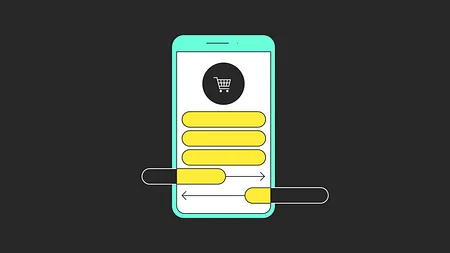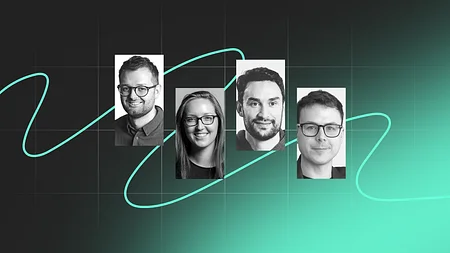How is fintech helping with customer stress?

This is the final article in a three-part series on how fintech for good (FFG) is helping people and the planet. The first touched on consumer behaviour. The second is about why ESG was destined to fail and how circular economies pose a possible solution.
Now we’ll focus on fintechs working in the ‘smoothing out the stressors’ section of FFG. We’ll look at the fintech industry leaders paving the way by creating sustainable loans, supporting earned wage access, and flexible insurance.
The impact of climate change on the planet is more than just extreme weather - the ripples from it will be felt economically and agriculturally. Experts predict 18% of worldwide GDP to be wiped out, creating 1.2bn climate refugees, widespread food insecurity, increased water wars and ecofascism. Fintech has a vital role to play in smoothing out these stressors.
Sustainable loans
Loans are an unavoidable part of life, especially during this period of high inflation. But instead of creating loans that will end up as a future burden with unsustainable interest and hidden charges, some fintechs are working to bring a new level of transparency and honesty to the space.
Fairlo was founded by two brothers after they witnessed how a loan their mother took out for their education came back to burden them. This motivated them to start a fintech aimed at creating a financially healthy future for as many people as possible. That means offering loans with a flat interest rate and no hidden charges is key. When taking out a loan, people are often stressed and likely to miss fee prices in the small print. Transparency and trust are integral aspects of Fairlo’s strategy to build a world-class sustainable lending fintech.
Earned wage access
This topic is getting a lot of coverage at the moment as people try to figure out if it’s a friend or foe. If done right and with sincerity, it's a friend that will help smooth out some of your financial stressors.
If done right and with sincerity, it's a friend that will help smooth out some of your financial stressors.
We’ve normalised the idea of receiving our salary once or twice a month, but that doesn't correlate with the large increase in zero-hour contracts over the past ten years.
Yes, there needs to be friction, but charging someone a large fee to access their money is cruel. Wagestream is a great example of a company doing it right. It’s taking a holistic approach to supporting people with their finances by offering coaching, financial tracking and automated savings. Wagestream’s fee is also on the lower end of the spectrum at £1.75 per withdrawal.
Companies not offering a holistic approach with financial education at their core are simply giving the industry a bad name. Without these tools, how can you create a financially resilient individual?
Companies not offering a holistic approach with financial education at their core are simply giving the industry a bad name.
Looking forward, the industry needs regulation with financial education as an integral part of the service. Friction can be good, but the sector needs to be more creative with how it utilises it. There are lessons to be learnt from Up, which has a ‘phone a friend’ option for people who want to withdraw from their savings. But the important thing to remember is that the wage access is earned. Friction must be positively utilised so users don’t feel obstructed or patronised.
Insurance
The insurance poverty premium pushes the poorest into deeper poverty, as insurance is seen as a relative luxury. And when low-income households do have insurance, it’s often more expensive. These households are seen as higher risk, have to pay via more expensive methods and are less likely to switch so end up saddled with a ‘loyalty penalty’. Combined, these factors mean insurance is either entirely unaffordable or expendable in the short term.
So what can be done to make insurance coverage more feasible for those in need?
Flexibility, affordable and good ol’ fashioned niceness
Fintech is well-placed to offer these things in spades. For example, Omocom allows customers to insure second-hand and rented items, offering greater flexibility and enhancing the circular economy.
Lemonade’s business model has radicalised the industry norm as well. The company takes a flat fee from each premium and uses the rest to pay claims and handle other expenses. Any money left over is given to charities selected by policyholders — adding up to more than $2.3m in donations in 2020. This signals a radical change in culture, meaning Lemonade doesn’t have to play hardball with customers' payouts. The product is customer-focused and just plain nice. It’s a far cry from going back and forth with insurers.
Payout before or as soon as disaster strikes
Floodflash is making flood insurance available and affordable to small businesses that had previously been struggling to get cover. If a flood does hit, the company pays the agreed compensation in a matter of hours. This rapid payout enables businesses to get back up and running quickly, minimising disruption and revenue loss. It can have a big impact on the speed of recovery if distributed to vulnerable communities - imagine what similar initiatives for other extreme weather events could do.
This is great for Western countries, but how can we help those in some of the world's poorest regions? The devastating floods in Pakistan have destroyed 80% of all livestock, highlighting the importance of having tools and insurance to support the most vulnerable in the world.
This is great for Western countries, but how can we help those in some of the world's poorest regions?
Ignitia is working with farmers in the tropics to help people before extreme weather strikes. By creating a tool that doesn't require a smartphone and offers pay-as-you-go payment, the company has really shown it understands its customers.
Education is the only way forward
This article has focused on the ‘smoothing out stressors’ section of FFG. Fintech is well-placed to help the most vulnerable members of society. If we’re to build a more empathetic future, financial services must be underpinned by financial education - it’s the only way to develop financial resilience.
With the climate crisis raging, the need for services that cater to people in the poorest regions of the world has never been greater. The fintechs listed above have made a start, but so much more progress and investment is needed in this area.
Inclusive design - building financial services for everyone
In our latest report, we make the argument against designing for the 'average user' and how FS needs to design products and services that cater to as many people as possible. Take the first step towards making that change and give it a read.




